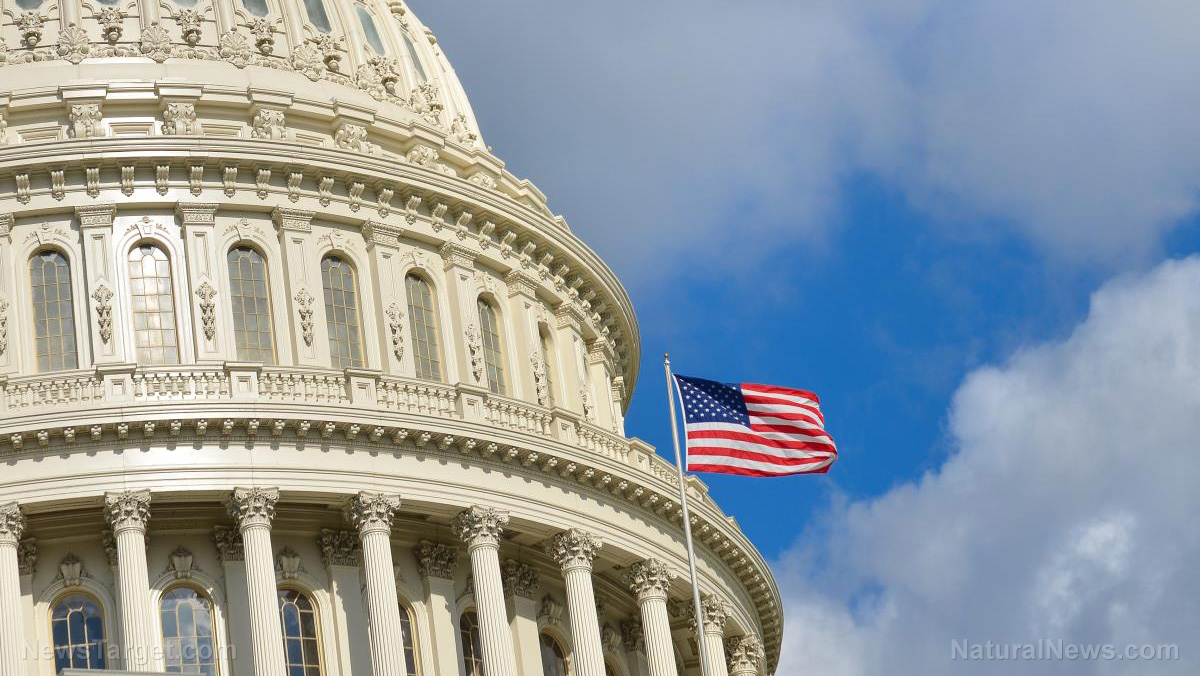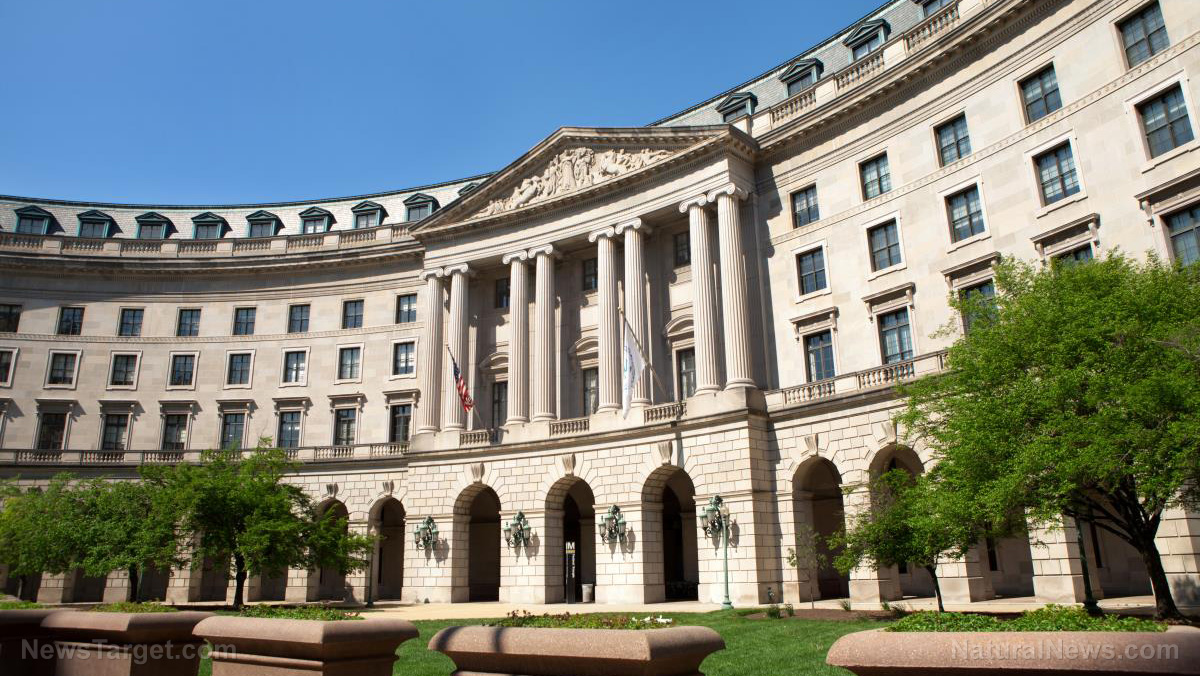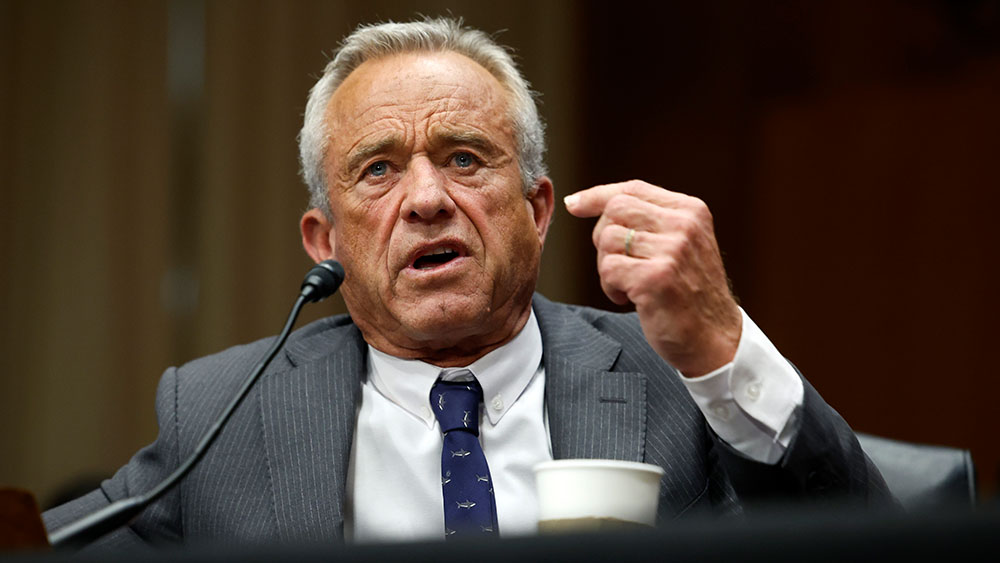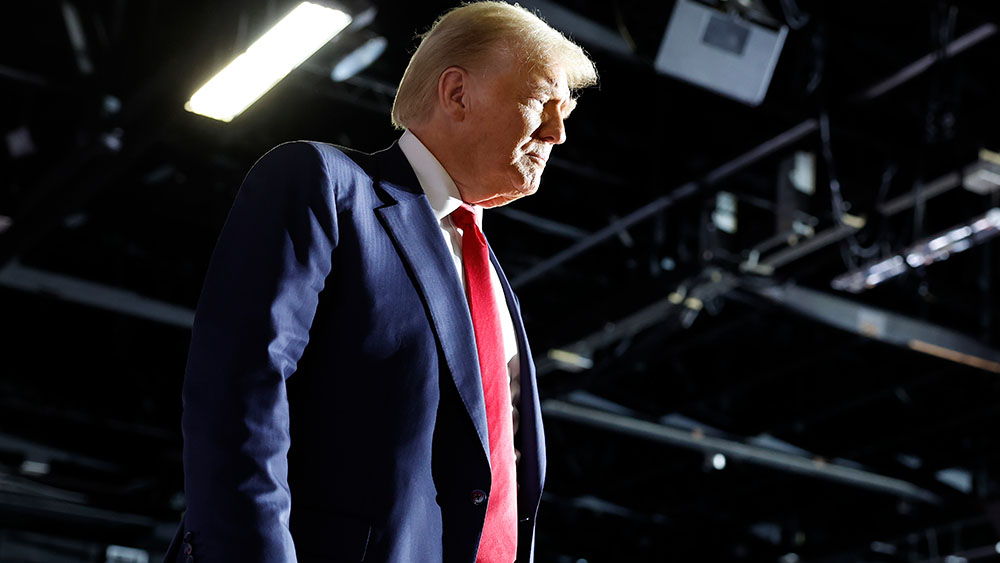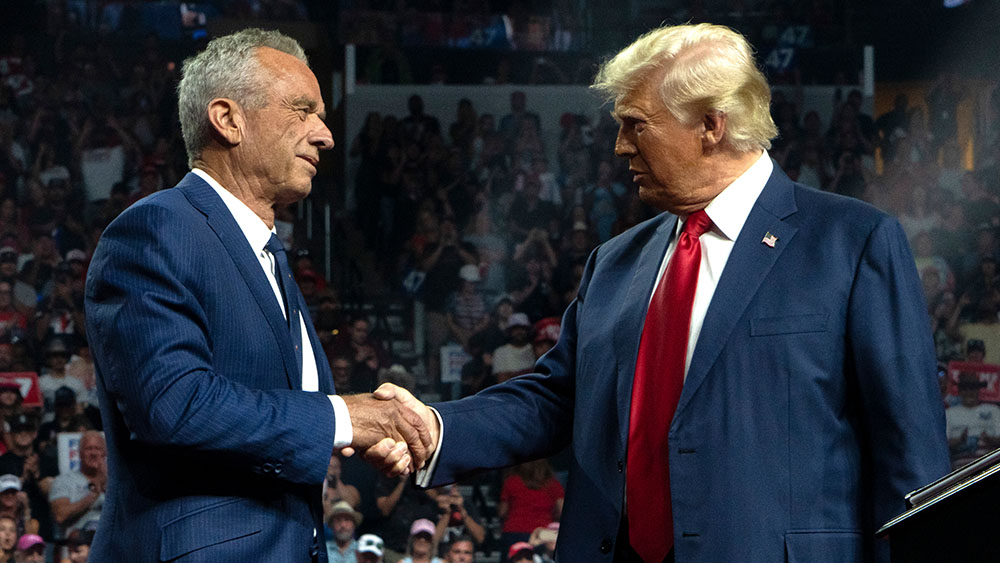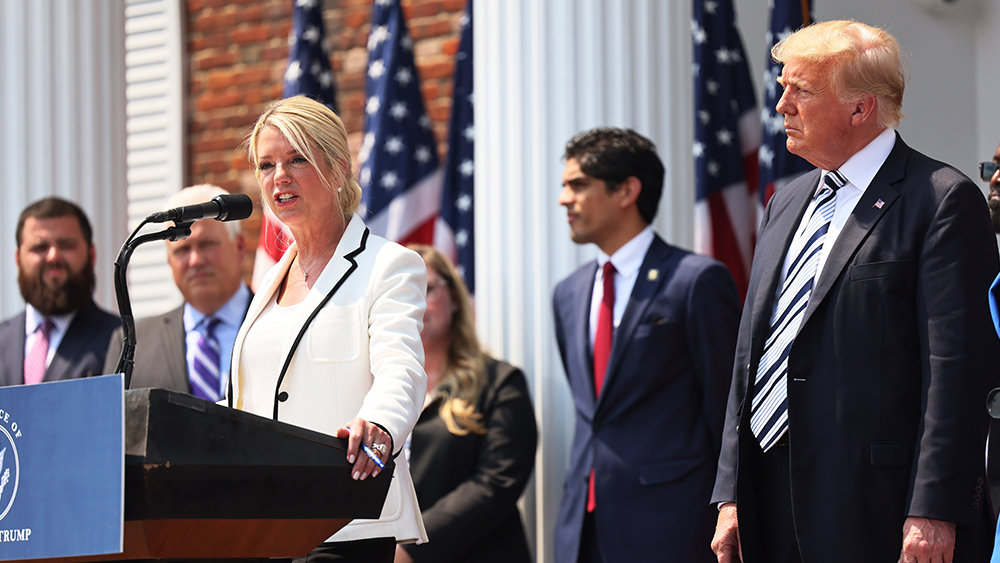Trump announces plan to end IRS and replace it with an agency focused on FOREIGN TARIFFS
01/16/2025 / By Belle Carter
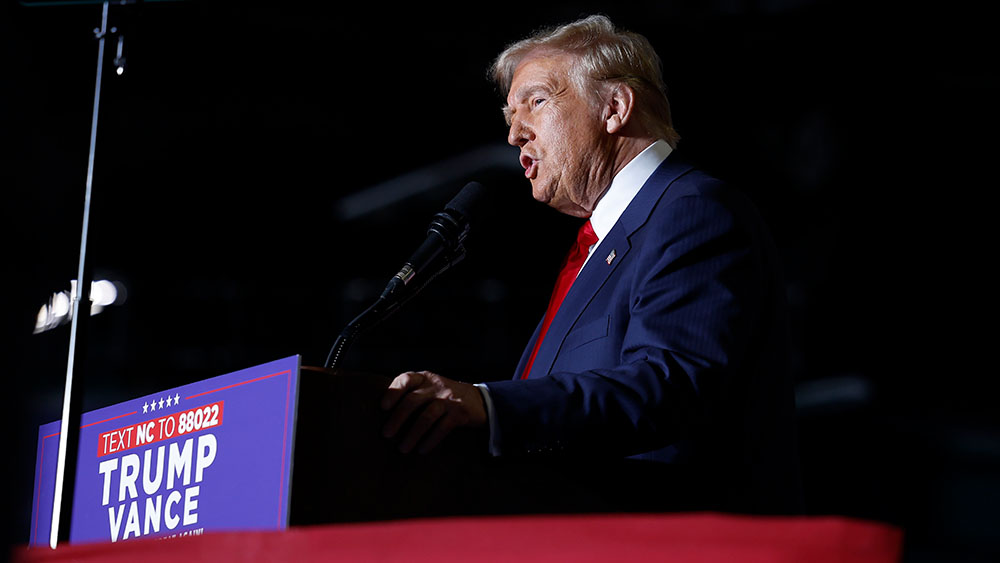
- President-elect Donald J. Trump proposes creating a new External Revenue Service (ERS) to collect tariffs and foreign revenues, effectively ending the need for the Internal Revenue Service (IRS).
- The plan marks a significant shift towards a trade-based revenue model, similar to the pre-1913 U.S. tax system, which relied primarily on tariffs.
- Supporters, including former Rep. Ron Paul, argue that the ERS will reduce domestic taxation and promote economic growth, while critics, including Democrats and economists, warn of inefficiency and regressive impacts.
- The proposal faces challenges, including the need for Congressional approval and concerns about the practicality of replacing the IRS, which collected over $4.9 trillion in revenue in 2023.
- Trump’s ERS initiative is part of his broader “Save America” agenda, which includes the Department of Government Efficiency (DOGE) led by Elon Musk and Vivek Ramaswamy, aimed at reducing federal programs and streamlining government operations.
President-elect Donald J. Trump announced Tuesday, Jan. 14, that he intends to create a new revenue agency, the External Revenue Service (ERS), to collect tariffs and other revenues from foreign sources, effectively ending the need for the Internal Revenue Service (IRS).
The proposal, which has garnered both enthusiastic support and fierce criticism, marks a significant departure from the current U.S. tax system and could have far-reaching implications for international trade and domestic economic policies.
For much of the United States’ history, the country relied primarily on tariffs as its main source of tax revenue. This system, which was in place until the introduction of the federal income tax in 1913, allowed the government to collect taxes on imported goods without directly taxing its citizens. Trump’s proposal echoes this historical approach, suggesting a shift away from direct taxation and towards a more trade-based revenue model.
“This plan is not just about collecting revenue; it’s about changing the fundamental way our economy interacts with the rest of the world,” said former Congressman Ron Paul (R-TX), a longtime critic of the IRS. “By relying on tariffs and duties, we can reduce the need for domestic taxation and promote economic growth.”
According to Trump, the ERS will be responsible for collecting tariffs, duties and other revenue from foreign sources, effectively replacing the IRS’s role in collecting domestic taxes. The President-elect’s plan calls for the ERS to begin charging foreign entities that “make money off of us with Trade,” arguing that this will ensure these entities “start paying their fair share.”
“We will begin charging those that make money off of us with Trade, and they will start paying, FINALLY, their fair share,” Trump wrote in a post on his Truth Social media platform.
The proposal, however, faces significant challenges. The creation of a new agency requires an act of Congress, and while Republicans hold the majority in both the House and the Senate, the plan is likely to face stiff opposition from Democrats and economists who argue that tariffs are an inefficient and regressive way to raise revenue. (Related: Trump fires warning shot at BRICS, threatens “100% tariffs” if China, Russia develop U.S. dollar alternative currency.)
Democrats are skeptical of Trump’s plan
While Trump’s proposal has garnered support from some quarters, including former Rep. Ron Paul, a longtime critic of the IRS, economists and Democratic lawmakers have expressed skepticism. Many economists argue that tariffs are an inefficient way to raise revenue and often result in higher costs for consumers.
“No amount of silly rebranding will hide the fact that Trump is planning a multi-trillion-dollar tax hike on American families and small businesses to pay for another round of tax handouts to the rich,” said Oregon Sen. Ron Wyden, the top Democrat on the Senate Finance Committee, in a statement.
Critics also question the practicality of replacing the IRS, which collected over $4.9 trillion in revenue in 2023, with a system reliant on tariffs. The IRS not only administers income taxes but also enforces tax laws, processes refunds and provides taxpayer assistance. Transitioning to a tariff-based system would require a massive overhaul of the U.S. tax code and could create significant disruptions.
Trump’s announcement aligns with his broader goal of reducing the size and scope of the federal government. As part of his “Save America” agenda, the president-elect has established the Department of Government Efficiency (DOGE), a nongovernmental task force led by billionaire Elon Musk and entrepreneur Vivek Ramaswamy. The DOGE is tasked with identifying ways to cut federal programs, reduce regulations, and streamline government operations.
The creation of the ERS would add a new layer to this effort, though it raises questions about redundancy. Existing agencies, such as the Commerce Department and Customs and Border Protection, already handle the collection of tariffs and duties. Critics argue that establishing a new agency could complicate rather than simplify government functions.
Head over to Trump.news for related news.
Watch the video below that talks about Trump establishing ERS.
This video is from the Blessed To Teach channel on Brighteon.com.
More related stories:
Fearing tariffs, Mexico scrambling to disperse migrant caravans ahead of Donald Trump’s inauguration.
REPORT: Tariffs during Trump’s first term would help U.S. decouple from China.
Sources include:
Submit a correction >>
Tagged Under:
big government, DOGE, domestic economic policies, Donald Trump, Elon Musk, ERS, External Revenue Service, foreign tariffs, international trade, IRS, tariffs, Taxes, Vivek Ramaswamy
This article may contain statements that reflect the opinion of the author
RECENT NEWS & ARTICLES
COPYRIGHT © 2017 COLLAPSE.NEWS
All content posted on this site is protected under Free Speech. Collapse.news is not responsible for content written by contributing authors. The information on this site is provided for educational and entertainment purposes only. It is not intended as a substitute for professional advice of any kind. Collapse.news assumes no responsibility for the use or misuse of this material. All trademarks, registered trademarks and service marks mentioned on this site are the property of their respective owners.








